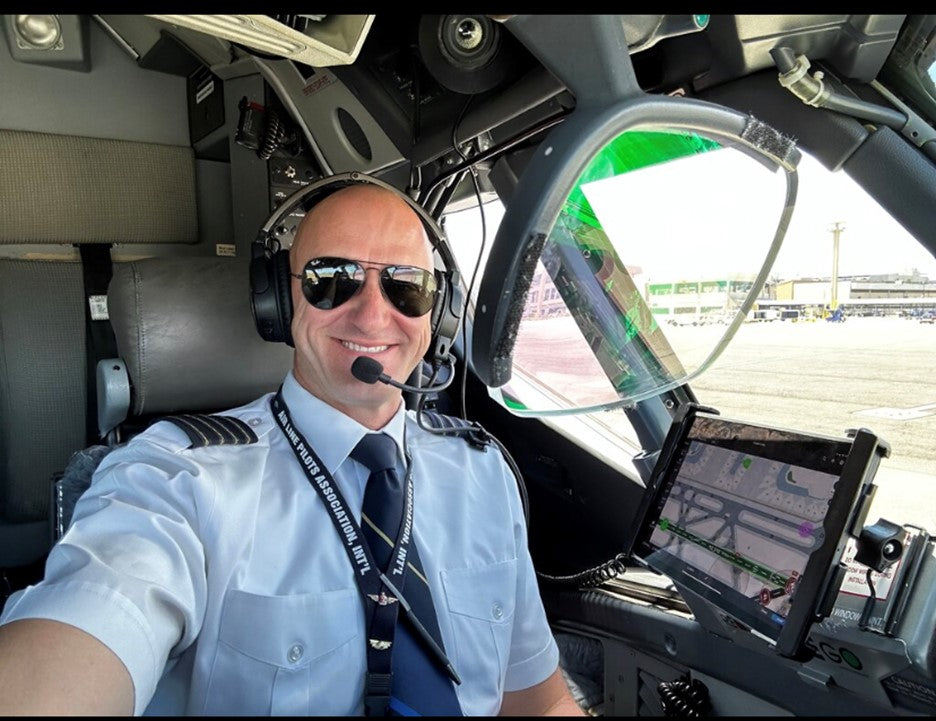
Psychedelics and Employee Assistance Programs: How to avoid a crash landing. Part 2
Pictured above Alaska Airlines Pilot, Joseph Emerson.
This 7-part series focuses on both the relationship between Employee Assistance Programs and employee mental health as well as the use of psychedelics to treat mental health issues such as anxiety, depression and PTSD.
As I discussed in part 1 of this series, it turns out that the Federal Aeronautics Administration (FAA) has a very strict policy about grounding pilots seeking help for mental health problems. In case you missed Part 1, allow me to review: On the day I was leaving the annual EAP conference in Portland, Oregon a pilot flying out of the same airport on the same airline I was flying on turned both engines off in what appeared to be an attempt to crash the plane. The two other pilots in the cockpit were able to wrestle him away from the controls and returned the plane back to Portland. Joseph Emerson, pictured above, was escorted off the plane by police officers and charged with 83 counts of attempted murder.
About two weeks after that, The New York Times reported that the pilot had been suffering from mental health problems for about a year prior to boarding that flight. According to this article, Mr. Emerson claimed: “[I] had no intention hurting anyone that day.”
Since he was only hitching a ride home on the plane and not flying it, he wasn’t concerned about the lingering effects of the psychedelic mushrooms he had consumed two days prior to the flight. Unfortunately for him and everyone on the plane, he started hallucinating in such a way that he believed he needed to shut down the power to the engines in order to “wake up” from his hallucination.
When this story first hit the news, I thought a long prison term was almost certainly in store for this pilot. Even when it came out later that he was suffering depression, I wondered why he didn’t just seek treatment? And that’s where this story gets interesting.
“For decades,” the NY Times article explains, “The Federal Aviation Administration has grounded pilots dealing with depression or other mental health diagnoses. Its policies are so strict that the decision to seek psychiatric help or a prescription for standard antidepressant medication is enough to trigger a suspension of their flight eligibility. It is a system that has left many pilots, including Mr. Emerson, to struggle largely alone.”
The article goes on to say that the FAA moved to approve certain antidepressants for use by pilots with mild or moderate depression, but still, going on medication requires the pilots to take a break from flying for months and sometimes longer. “The potential effect on their careers…has prompted many aviators to either lie about the treatment they are receiving risking a punishment of five years in prison and a $250,000 fine.”
In the last installment, I mentioned that a lot of the union EAPs have their own counselors who have worked in the same industry. (You can see Emerson’s Union affiliation in the picture above printed on the lanyard hanging around his shoulders.) Typically, these union EAPS are INTERNAL EAPs who understand the ins and outs of their client’s profession rather than an off-site counselor (an external EAP) who knows very little about this person’s specific challenges and the industry where they work.
Certainly, what might have helped prevent this crisis altogether, would have been for Mr. Emerson to talk to an INTERNAL EAP: Someone who truly could understand his position. Someone who could confidentially counsel him with an Internal EAPs knowledge of how to navigate the mental health rapids he found himself drowning in, where he couldn’t seek out standard treatments without risking his career. We’ll discuss how that might have played out in detail in the next installment. And in parts 4-7 we’ll talk about promising new Psychedelic assisted therapies that can help people quickly recover from depression with just one dosing session.





James Porter
Author